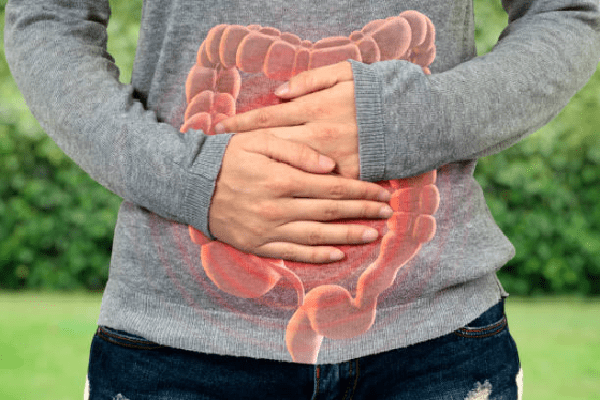Infectious diseases >>>> Gastroenteritis is two forms of the course of the disease
Gastroenteritis is two forms of the course of the disease.

Gastroenteritis is a generalized name for diseases associated with inflammatory processes affecting the mucous membranes lining the stomach, small intestine and caused by various kinds of toxins of viruses, bacteria, protozoa, often provoking allergic reactions (allergic gastroenteritis). When it comes to inflammation of the colon mucosa, the disease is called gastroenterocolitis. With gastroenteritis, malfunctions begin in the process of digestion, the functions of absorption of the mucous membrane of nutrients are disrupted, and general intoxication of the body. Gastroenteritis can be acute or chronic.
Acute gastroenteritis is an extremely common painful condition that is in the category of infectious diseases, and it is this fact that contributes to the patient getting into the infectious ward, since the symptoms of gastroenteritis are very reminiscent of the onset of diseases such as bacterial dysentery, salmonellosis, rotavirus infection , and poisoning . Therefore, until the specific nature of the infectious agent (biodiagnostics) is clarified, the diagnosis is not specified, but treatment is prescribed that is common for all diseases associated with toxicoinfection.
Signs of acute gastroenteritis:
- Nausea, vomiting
- Diarrhea (characterized by watery diarrhea)
- Flatulence, intestinal cramps
- Sweating, pallor, chills
- Tachycardia
- Pressure drop associated with dehydration
- Weakness, light-headedness, fainting
- Temperature rise from subfebrile (37 in Celsius) to high (39 in Celsius)
In the treatment of acute gastroenteritis, several directions are followed:
First, the restoration of water and electrolyte balance, disturbed as a result of dehydration caused by toxins. Usually, intravenous administration of glucose and saline solutions is carried out, an abundant drink is prescribed (but sour, bitter, overly salty or overly sweet drinks are excluded so as not to irritate the stomach and intestines). They also take adsorbents, pectin-containing preparations, enveloping agents, bismuth preparations. Antidiarrheal drugs should not be used because they prevent the removal of infection and toxins from the body.
Secondly, antimicrobial treatment is prescribed depending on the identified bioagent: antibacterial (including antibiotics to which the identified bacterial strain is sensitive, Intesty-bacteriophage, Pyobacteriophage or other types of bacteriophages suitable for the identified genus of bacteria), antiprotozoal or antiviral drugs (according to necessary).
Thirdly, therapy related to the restoration and normalization of the intestinal microflora is carried out, that is, the intake of probiotics (lacto- and colibacteria). Bifidobacterin is not taken during treatment with antibacterial agents, since the latter have a detrimental effect on bifidobacteria. Bifidobacterin is prescribed three months after antibiotic treatment.
Fourth, a sparing diet is prescribed, which should be followed not only until the infection is cured, but also for one to three months after recovery, in order to enable the gastrointestinal mucosa to recover. The diet excludes raw vegetables and fruits, spices, smoked meats, fried foods, dairy products, dough products. Lightly salted vegetable puree soups (cooked not in meat broth) with black bread croutons (soaked), well-ground boiled or steamed meat, slimy boiled cereals (oat, rice, pearl barley), mashed potatoes, steam omelettes, cooked or steamed vegetables, jelly.
Fifthly, after the aforementioned course of treatment, enzyme therapy, taking enveloping agents (for example, de-nol) and vitamin therapy, will help to establish digestion processes and replenish useful substances excreted with diarrhea and vomiting.
Chronic gastroenteritis, in contrast to its acute form, is a rather complex disease that requires persistent treatment and lifestyle changes.
The causes of chronic gastroenteritis:
- Indigestion and mucosal injury from eating harsh, poorly chewed food
- Eating dry food
- Food allergies
- Medicinal or chemical toxins
- Drinks containing alcohol
Chronic gastroenteritis signs:
- Dull, aching pain in the navel
- Pain when walking, moving or shaking
- Bursting pain in the intestines
- Rumbling, flatulence
- A feeling of heaviness in the stomach or intestines
- Nausea
- Weakness or dizziness after eating
- Loose stools with gas bubbles and undigested food pieces
Treatment of chronic gastroenteritis is long-term, since it requires a change in eating habits, maintaining a certain diet and exclusion from life of all factors that contribute to its progression (listed in the group "causes").
If a violation of digestive activity is established, then they take drugs that restore or help to some extent restore the natural processes of digestion (digestive enzymes, probiotics). The injured mucous membrane is protected with enveloping agents. Prebiotics should be excluded from the treatment process, as they contain coarse fibers and will injure the intestines.
The diet should be based on the exclusion from the diet of refractory fats, a large amount of fiber (it irritates the intestinal mucosa), meat broths, baked and boiled dough. Carbonated or fermenting drinks should also be avoided. Vegetables and fruits should be eaten boiled, baked or steamed. Mashed and mashed dishes, vegetable soups, mashed soups, jelly and compotes are welcome. Meals should be fractional (often in small portions), food should not be hot. Alcohol-containing drinks will have to be abandoned.

Read

Read



























